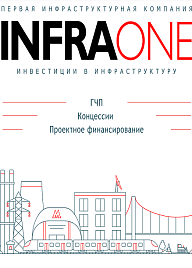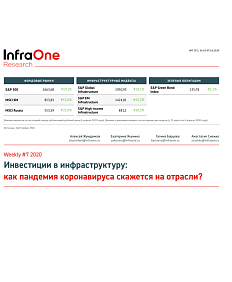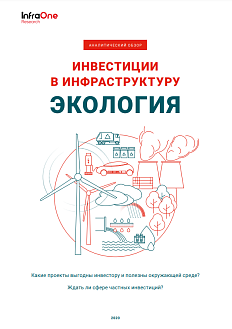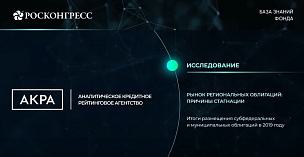Raising VAT from 18% to 20% in 2019 is one of the ways to find money for the large-scale infrastructural construction stipulated in the Presidents «May Decrees». Raising VAT will give the government an extra 625640 billion rubles a year from taxation, which will amount to 3.8 trillion rubles in six years. However, GDP growth, investment growth and investment activity will slow down after the tax increase. The Ministry of Finance continues to save up excess oil revenues. For July 1, they amounted to about 105 billion dollars. Investing these funds isnt planned yet. Infrastructure investments from the National Wealth Fund will not start until it exceeds 7% of GDP.
.png)
As estimated by InfraONE, raising the value added tax and the pension age, combined with the high prices for oil and the announced government borrowings, will give an extra 1515.6 trillion rubles in six years. It must be kept in mind that there is currently a shortage of high-quality infrastructure projects in Russia. For now, the government gives little attention to developing projects meaning systematic work with seed-stage projects at the national level. This means that in 2020 there may still be nowhere to invest the hard-won budget funds.
In late June 2018, the laws on concessions (No. 115-FZ) and PPPs (No. 224-FZ) were amended by adding new items: these agreements can now be concluded for creating IT systems, such as software programs, databases, information systems and websites, and data processing centers. In recent years, some projects for IT systems have already been launched, but for other types of infrastructure. The number of such projects is expected to rise, given the fact that market size for project funding through public-private partnership in this area amounts to at least 300 billion rubles for the nearest two or three years. Another novelty introduced in June is including telecommunication facilities into the law on PPPs. InfraONE forecasts that three to five telecom projects will be launched before the end of 2019.
Meanwhile in Japan, the state bank Japan Bank for International Cooperation (JBIC) is launching a special credit line for projects with a global focus on preserving the environment. This way, the government encourages companies to make more ecological investments. As for China, constructing new solar farms is now restricted there because of an excess of this type of infrastructure. Starting from May, Chinese authorities stopped subsidizing new solar energy projects as there isnt enough money for that and the market needs to be purged of unstable and ineffective companies.






